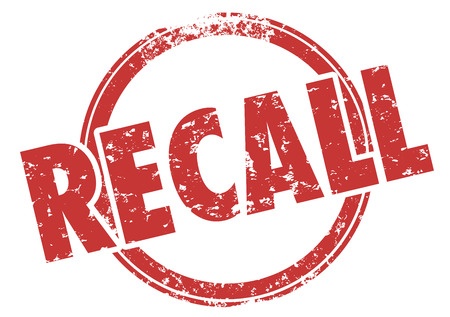Is the NHTSA Tough Enough When Assessing Vehicle Defects?
September 6, 2019 | Category: Automobile Accidents, Unsafe Vehicles | ShareCritics of the National Highway Traffic Safety Administration (NHTSA) say the agency does not have the expertise to properly process defective vehicle complaints. They believe the NHTSA is reluctant to order recalls, which may lead to legal fights, because of a tight budget and small staff.
 Heidi King, NHTSA Deputy Administrator, disagrees and told the Detroit Free Press in July 2019 the agency was restructured in 2016 and added staff which is knowledgeable in today’s car technology and are more proactive. Ms. King cited the years 2015-2018 as the top four years for recalls in the agency’s history. In a statement she said, “Automakers share information with us, but I don’t think we just hear information and hang up. If there’s something I’m uncomfortable with, neither I, nor anyone here, is hesitant to pick up the phone and call and ask more questions. We take very seriously that we get it right. Last year, the agency received 65,000 consumer vehicle questionnaires, about 29,000 of which were safety complaints.”
Heidi King, NHTSA Deputy Administrator, disagrees and told the Detroit Free Press in July 2019 the agency was restructured in 2016 and added staff which is knowledgeable in today’s car technology and are more proactive. Ms. King cited the years 2015-2018 as the top four years for recalls in the agency’s history. In a statement she said, “Automakers share information with us, but I don’t think we just hear information and hang up. If there’s something I’m uncomfortable with, neither I, nor anyone here, is hesitant to pick up the phone and call and ask more questions. We take very seriously that we get it right. Last year, the agency received 65,000 consumer vehicle questionnaires, about 29,000 of which were safety complaints.”
In 2018, the NHTSA oversaw 914 vehicle recalls, affecting 29 million vehicles. The previous year, the agency oversaw 810 recalls, which impacted 31 million cars. At the present time, the NHTSA has 63 open investigations.
“Defective vehicles and/or vehicle equipment have resulted in death and injury to thousands of drivers and passengers in the United States. In order to protect them and diminish the number of accidents caused by defective vehicles, it is important that every step of the recall process be followed in an expeditious manner,” said Fort Myers Car Accident Attorney Randall Spivey of Spivey Law Firm, Personal Injury Attorneys, P.A.
What happens to complaints made to the NHTSA?
Complaints by consumers made to the NHTSA on its website are handled in three steps: screening, analysis, and investigation.
- SCREENING
The NHTSA reviews filed complaints from vehicle owners and other information related to alleged defects to decide whether to open an investigation.
- ANALYSIS
The NHTSA conducts an analysis of any petitions calling for defect investigations. If the petition is denied, the reasons for the denial are published in the Federal Register.
- INVESTIGATION
The NHTSA opens an investigation of alleged safety defects. It is closed when they notify the manufacturer of recall recommendations, or they don’t identify a safety-related defect.
According to the NHTSA website, “A recall is issued when a manufacturer or NHTSA determines that a vehicle, equipment, car seat, or tire creates an unreasonable safety risk or fails to meet minimum safety standards. Most decisions to conduct a recall and remedy a safety defect are made voluntarily by manufacturers prior to any involvement by the NHTSA. Manufacturers are required to fix the problem by repairing it, replacing it, offering a refund, or in rare cases repurchasing the vehicle.
“Should you or a loved one be injured in an accident because of the negligence of another, please contact our experience legal team. We are available to assist you 24/7, and there are no costs or attorney fees unless we make a monetary recovery for you,” said Attorney Spivey.
Fort Myers Car Accident Attorney Randall L. Spivey is a Board Certified Trial Attorney – the highest recognition for competence bestowed by the Florida Bar and a distinction earned by just one (1%) percent of Florida attorneys. He has handled over 2,000 personal injury and wrongful death cases throughout Florida. For a free and confidential consultation to discuss your legal rights, contact the Spivey Law Firm, Personal Injury Attorneys, P.A., in Lee County at 239.337.7483 or toll free at 1.888.477.4839,or by email to Randall@SpiveyLaw.com. Visit SpiveyLaw.com for more information. You can contact Spivey Law Firm, Personal Injury Attorneys, P.A.in Charlotte County at 941.764.7748 and in Collier County 239.793.7748.

